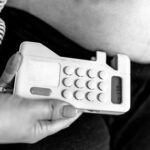When pregnancy symptoms start is a crucial question for expecting mothers as it marks the beginning of a remarkable journey. Being aware of these signs is vital for understanding and monitoring one’s health during this pivotal stage. From missed periods to fatigue and nausea, the early signs and symptoms of pregnancy can vary from woman to woman.
During weeks 1-4 of pregnancy, specific symptoms such as implantation bleeding and mood changes may occur, signaling the onset of this transformative process. As women progress into weeks 5-8, they may experience breast tenderness and frequent urination, among other indicators of pregnancy. The following weeks 9-12 often bring about morning sickness and food aversions, highlighting the changes happening within the body.
It is essential for expectant mothers to know when to seek medical advice if experiencing pregnancy symptoms that cause concern or discomfort. Consulting healthcare professionals at the right time ensures proper guidance and care throughout the pregnancy journey. By recognizing and managing these symptoms effectively, pregnant women can enhance their overall well-being for a healthy pregnancy experience.
Early Signs and Symptoms
During the early stages of pregnancy, it is crucial for expecting mothers to be aware of the initial indicators that may signal conception. One of the most common early signs of pregnancy is a missed period. When a woman misses her regular menstrual cycle and experiences other symptoms, it may be an indication that she is pregnant. This absence of menstruation occurs because the fertilized egg has implanted itself in the uterus, leading to hormonal changes in the body.
In addition to a missed period, fatigue is another prevalent symptom experienced by many pregnant women during the early weeks of pregnancy. The body undergoes significant changes to support the growing fetus, which can result in increased tiredness and exhaustion. Hormonal fluctuations, increased blood production, and emotional stress can also contribute to feelings of extreme fatigue during this time.
Nausea and morning sickness are also common early signs of pregnancy that many women experience. While not all pregnant individuals will encounter intense nausea or vomiting, these symptoms can often begin as early as two weeks after conception.
The surge in hormones like human chorionic gonadotropin (hCG) is believed to play a role in causing nausea during pregnancy, particularly in the mornings. These uncomfortable symptoms typically subside by the end of the first trimester for most women but can vary from person to person.
Weeks 1-4
During the first month of pregnancy, women may start noticing some subtle but significant changes in their bodies that serve as early signs of being pregnant. One common symptom during this period is implantation bleeding, which occurs when the fertilized egg attaches itself to the uterine lining.
This light spotting typically occurs around 6-12 days after conception and is often mistaken for a light period. It is one of the earliest signs of pregnancy that can be easily missed if not paying attention.
In addition to implantation bleeding, mood changes are another symptom that many women experience during the first few weeks of pregnancy. Hormonal fluctuations can greatly impact a woman’s emotional state, leading to feelings of irritability, anxiety, or weepiness. These mood swings are normal and can be attributed to the surge in hormones like estrogen and progesterone. Understanding that these changes are a result of pregnancy can help expectant mothers cope better with these emotional shifts.
Another symptom that may occur during weeks 1-4 of pregnancy is breast tenderness or soreness. The hormonal changes in a woman’s body cause increased blood flow to the breasts, making them more sensitive and tender to touch. This discomfort may persist throughout the first trimester as the body prepares for milk production. It is essential for pregnant women to wear supportive bras and avoid any activities that could further aggravate breast tenderness during this critical stage of development.
Weeks 5-8
During the second month of pregnancy, expecting mothers may notice a range of symptoms that signify the progression of their journey towards motherhood. These early signs can vary from woman to woman but are essential indicators of the body adapting to the changes brought on by pregnancy. It is crucial for pregnant women to be aware of these symptoms not only for their own well-being but also for the proper care and monitoring of their unborn child’s development.
Here are some common symptoms that typically manifest between weeks 5-8 of pregnancy:
- Breast tenderness: Many women experience breast tenderness or sensitivity during early pregnancy due to hormonal changes in preparation for breastfeeding.
- Frequent urination: The growing uterus puts pressure on the bladder, leading to more frequent trips to the bathroom. This symptom is often one of the earliest signs of pregnancy.
- Heightened sense of smell: Some pregnant women may become more sensitive to odors, which can trigger nausea or aversions to certain foods or smells.
It is important for expectant mothers to take note of these symptoms and communicate any concerns with their healthcare provider. Regular prenatal check-ups allow medical professionals to monitor both maternal and fetal health throughout the pregnancy journey. By staying informed and seeking medical guidance when necessary, pregnant women can ensure a smooth and healthy pregnancy for themselves and their baby.
Weeks 9-12
During weeks 9 to 12 of pregnancy, many women continue to experience some common symptoms while others may find relief from early pregnancy discomforts. One of the hallmark symptoms during this period is morning sickness, which can actually occur at any time of the day.
Nausea and vomiting can be quite intense for some expectant mothers, making it challenging to keep food down and maintain a regular eating schedule. This symptom is believed to be due to hormonal changes in the body as well as increased sensitivity to certain smells.
In addition to morning sickness, food aversions also become more pronounced for many pregnant women during weeks 9 to 12. Certain foods that were once enjoyed may now be repulsive or cause feelings of nausea at the mere thought of consuming them.
This shift in taste preferences is often attributed to hormonal fluctuations that influence a woman’s sense of smell and taste. It is essential for pregnant women experiencing food aversions to listen to their bodies and honor these cravings or dislikes when choosing what to eat.
Apart from these primary symptoms, women in their third month of pregnancy may also notice an increase in fatigue as their bodies work harder to support the growing fetus. Hormonal changes, along with physical strain from carrying extra weight, can contribute to feelings of tiredness and exhaustion. It is crucial for expecting mothers during this stage to prioritize self-care, rest when needed, and seek support from loved ones as they navigate through these physical and emotional changes during pregnancy.
| Symptom | Description |
|---|---|
| Morning Sickness | Nausea and vomiting can occur at any time of day due to hormonal changes. |
| Food Aversions | Pregnant women may develop strong dislikes or aversions towards certain foods. |
| Fatigue | Increased tiredness may be experienced due to hormonal shifts and physical strain on the body. |
When to See a Doctor
During the early stages of pregnancy, it is crucial for expectant mothers to be mindful of their bodies and recognize any potential signs that may indicate pregnancy. Knowing when pregnancy symptoms start can help women seek appropriate medical care and support throughout their journey to motherhood. Here are some guidelines on when to consult a healthcare professional if experiencing pregnancy symptoms:
- Missed Period: One of the most common indicators of pregnancy is a missed period. If you have skipped a menstrual cycle and suspect you might be pregnant, it is advisable to take a home pregnancy test or visit your doctor for confirmation.
- Unexplained Fatigue: Feeling unusually tired or exhausted for no apparent reason could be a sign of early pregnancy. If you are constantly fatigued despite getting enough rest, consider consulting a healthcare provider to rule out other underlying health issues.
- Nausea and Vomiting: Morning sickness typically begins around the sixth week of pregnancy but can vary from woman to woman. If you are experiencing severe nausea and vomiting that interfere with your daily activities, seeking medical advice can help manage these symptoms effectively.
As the body undergoes significant changes during pregnancy, it is important to monitor any unusual symptoms that may arise and seek guidance from a healthcare professional when needed. Whether it’s discussing potential treatment options for morning sickness or addressing concerns about mood swings, doctors can provide valuable insight and support to ensure a healthy pregnancy journey.
Remember that every woman’s experience with pregnancy symptoms is unique, so do not hesitate to reach out for medical advice if you have any doubts or questions along the way.
- Abnormal Bleeding: Any vaginal bleeding during pregnancy should be promptly evaluated by a doctor, as it could indicate complications such as ectopic pregnancy or miscarriage.
- Persistent Abdominal Pain: Severe abdominal cramping or persistent pain in the abdomen should never be ignored, as it could signal an impending miscarriage or other serious conditions requiring immediate medical attention.
- Sudden Swelling: Experiencing sudden swelling in the hands, face, or feet could be a sign of preeclampsia, a serious condition that requires medical intervention to prevent complications for both mother and baby.
By being proactive about monitoring your health and recognizing when to seek help from healthcare providers, you can ensure a smooth and safe transition into motherhood while staying informed about when pregnancy symptoms start.
Managing Symptoms
The early stages of pregnancy can bring about a variety of symptoms that may cause discomfort for expecting mothers. Managing these symptoms is crucial to ensuring a smoother and more comfortable pregnancy journey. One common symptom that many women experience is morning sickness, which can range from mild nausea to severe vomiting. To alleviate morning sickness, it is recommended to eat small, frequent meals throughout the day and stay hydrated by drinking plenty of water.
Another prevalent symptom during pregnancy is fatigue, as the body undergoes significant changes to support the growing fetus. To combat fatigue, pregnant women should prioritize rest and relaxation, ensuring they get an adequate amount of sleep each night. Incorporating gentle exercise into daily routines can also help boost energy levels and reduce feelings of tiredness.
Furthermore, many expectant mothers may struggle with mood changes due to hormonal shifts during pregnancy. It is essential to practice self-care techniques such as meditation, deep breathing exercises, or seeking emotional support from loved ones or healthcare providers. Engaging in activities that promote relaxation and stress relief can help manage mood swings and enhance overall well-being during this transformative time.
| Managing Pregnancy Symptoms | Alleviating Discomfort |
|---|---|
| Morning Sickness | Eat small, frequent meals and stay hydrated |
| Fatigue | Prioritize rest, get enough sleep, incorporate gentle exercise |
| Mood Changes | Practice self-care techniques like meditation and seek emotional support |
Conclusion
Recognizing the early signs and symptoms of pregnancy is crucial for expecting mothers as it allows them to take necessary steps towards ensuring their well-being and that of their baby. From missed periods to fatigue and nausea, these indicators serve as tell-tale signs that a woman may be pregnant. Understanding the timeline of when pregnancy symptoms start can help women navigate the challenges of pregnancy more effectively, allowing them to seek proper medical care and support when needed.
As outlined in this blog post, the first trimester of pregnancy brings about various symptoms that may vary from woman to woman. From implantation bleeding in the first few weeks to morning sickness in the third month, these changes can be overwhelming if not properly managed. By being aware of what to expect during each stage of pregnancy, women can better prepare themselves both physically and emotionally for the journey ahead.
In conclusion, paying attention to when pregnancy symptoms start is crucial for maternal health and overall well-being. Early detection allows for timely interventions and ensures that both mother and baby receive the care they need throughout the pregnancy.
By recognizing these signs early on, expectant mothers can take proactive steps towards a healthy and safe pregnancy journey. Remember, if you are experiencing any concerning symptoms or have any doubts about your health during pregnancy, do not hesitate to consult with your healthcare provider for guidance and support.
Frequently Asked Questions
How Soon Can You Get Symptoms of Pregnancy?
Symptoms of pregnancy can vary for each woman, but some may start experiencing early signs as soon as one week after conception. These early symptoms may include implantation bleeding, fatigue, breast tenderness, and nausea.
What Symptoms Do You Have at 1 Week Pregnant?
At just 1 week pregnant, it is highly unlikely that you would experience any noticeable symptoms. This is because at this stage, the fertilized egg has just implanted in the uterus lining and hasn’t started producing hCG hormone yet. However, some women may start feeling subtle changes like mild cramping or fatigue.
How Soon Can You Know if You Are Pregnant?
The earliest way to know if you are pregnant is by taking a home pregnancy test. Most store-bought tests can provide accurate results as early as the first day of your missed period.
Some more sensitive tests may even be able to detect pregnancy a few days before your expected period. If you suspect you’re pregnant but the test is negative, consider taking another test a few days later or consult with your healthcare provider for a blood test to confirm pregnancy.

Welcome to my fertility blog. This is a space where I will be sharing my experiences as I navigate through the world of fertility treatments, as well as provide information and resources about fertility and pregnancy.





